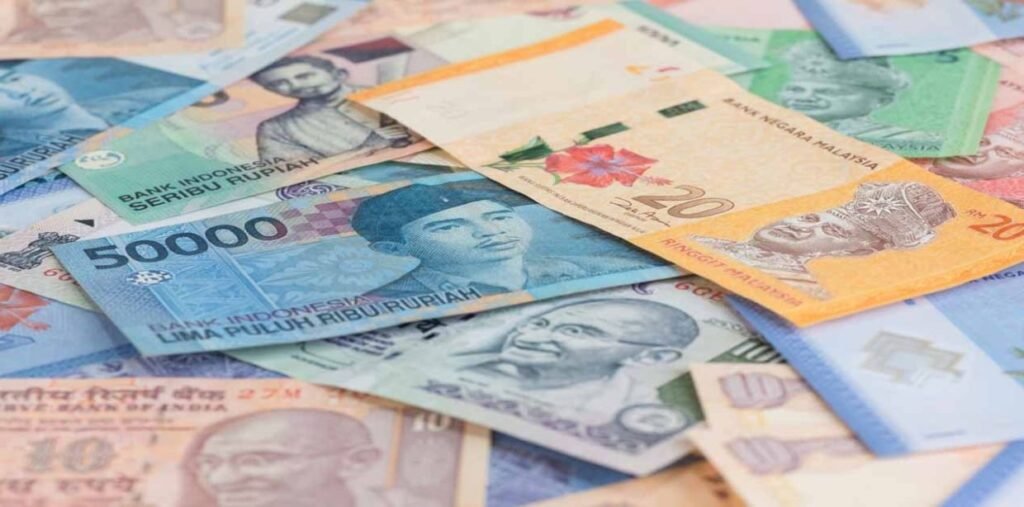Emerging Asian currencies fell against a resurgent dollar on Friday while stocks retreated, as investors reassessed their positions after the U.S. Federal Reserve signalled a more calibrated approach to further monetary policy easing.
Stock markets in developing Asia were broadly on the back foot. The MSCI gauge of EM Asia equities fell 0.6% but held just below a four-year peak.
Singapore’s FTSE Straits Times drifted lower for sixth consecutive session after reaching a record high on September 12, and stocks in Taiwan and South Korea slipped from record peaks scaled the previous day.
However, most equity benchmarks in the region were headed for weekly gains, largely because of the recent rally to record or multi-year highs in the run-up to the Fed’s rate verdict.
A dovish Fed has given Asian central banks greater flexibility to ease monetary policy without triggering currency pressures, thereby supporting growth and further boosting investor risk appetite.
The MSCI EM Asia index advanced roughly 1% this week, while stocks in Indonesia and the Philippines were set to add 2% and 3%, respectively.
“The Fed signalling a rate cut cycle should continue to support risk appetite, so long as U.S. data does not materially deteriorate from here,” wrote Nomura analysts led by equity strategist Chetan Seth.
“We think valuations of larger Asian markets are on the higher side, but not yet at extreme levels.”
EM currencies were broadly lower against the dollar, with an MSCI index of global EM units slipping for a second consecutive day after reaching a 10-week high earlier in the week.
Malaysia’s ringgit fell to 4.210 per dollar, its lowest in a week, and the rupiah sank to a four-month low of 16,585 a dollar.
The latter has lost 1.7% since the reputed finance minister, Sri Mulyani Indrawati, was abruptly sacked on September 8, with Wednesday’s surprise rate cut deepening the rupiah’s decline.
The policy easing helped Indonesia stocks zoom past the 8,000-mark on Wednesday. The index was on course for its best week in five, even as concerns over fiscal discipline and Bank Indonesia’s autonomy persisted.
South Korea’s won slipped to a two-week low of 1,396.41 points, while Taiwan’s dollar drifted lower from a one-month high. Thailand’s equities were largely steady after dropping 0.7% the previous day, while the baht hovered around 31.85 per U.S. dollar.
The Bank of Thailand intervened earlier in the day to slow the currency, which has risen more than 7% this year and is a threat to the export and tourism-reliant economy.
HIGHLIGHTS:
** Yield on Indonesia’s 10-year government bond at 6.317%
** BOJ to unwind ETF holdings as board dissent signals hawkish shift; Nikkei slips from record high
** Indonesia FM says no need to change “arbitrary” fiscal rules
** Short bets on rupiah, rupee surge; bulls crowd yuan, baht – Reuters poll – Reuters







